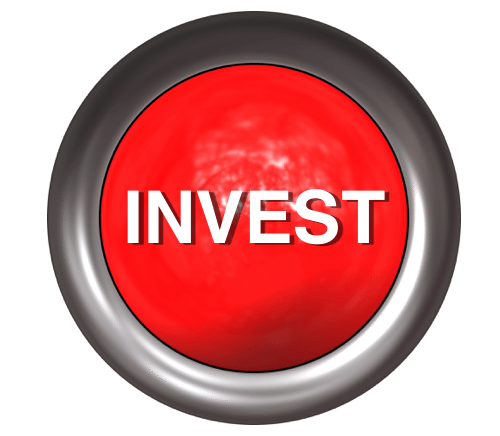 BNP Paribas Asset Management and the CAIA Association and Hong Kong-based Liquefy have released a research paper covering how tokenization may be used to offer improved access to illiquid alternative investments.
BNP Paribas Asset Management and the CAIA Association and Hong Kong-based Liquefy have released a research paper covering how tokenization may be used to offer improved access to illiquid alternative investments.
The joint paper explains how tokenization may have a lot of potential for use with assets that are currently illiquid and may have higher entry barriers. Tokenization is well-positioned as “a powerful tool for the wealth and asset management industries, allowing for significant innovation,” the paper noted.
For investors, tokenization may offer democratized access to various investment options, but “greater awareness and training will be paramount,” the paper stated.
As explained in the paper shared with Crowdfund Insider:
“Tokenization is the process of creating a digital representation of a non-digital asset. … this new technology has great potential to democratize access to alternative investments, while also enabling asset managers to innovate by investing in alternative asset tokens, thereby broadening the types of exposures they can potentially offer investors.”
The paper revealed that alternative investments are “expected to account for 18-24% of the global investable market by 2025.” They may include vehicles like hedge funds, private equity, venture capital, private debt and real assets like real estate, infrastructure and natural resources, which are considered “less liquid, accessible and transparent in terms of information than traditional assets.”
Like any new technology or major disruption to existing processes, tokenization can transform the financial landscape, creating new opportunities for banking institutions, assets and wealth managers.
The paper further noted:
“For asset managers specifically, it could create new investment opportunities, changing the way they analyze and invest in this market, creating potential changes in the dynamics of multi-assets investing. Ultimately, it would mostly benefit end investors, be they retail, high net worth individuals or institutional, as it would allow them to access alternatives in an easier and more affordable way.”
Tokenization may potentially also provide access to new forms of assets like as art, wine, or even “revenues associated with sports teams,” the paper stated.
As mentioned by the paper’s authors, the tokenization process involves deal structuring, digitization, primary distribution, post-token management and “the enablement of secondary market trading.” Across the alternatives landscape, tokenization might potentially be able to effectively “address a number of challenges often faced by both GPs (general partners) and LPs (limited partners).”
These challenges include:
- Improving liquidity: tokens may be traded in secondary markets
- Enabling faster and cheaper transactions: “reduced transaction and lifetime cost through lower complexity and better operational efficiency”
- Offering greater transparency: token holders’ rights and legal responsibilities as well as record of ownership “can be embedded into the tokens themselves”
- Broadening access: “increased access by more investors to previously unaffordable or not easily divisible asset classes”
This new paper is “the first in the market to cover the broad spectrum of tokenization across all of the categories broadly defined as being ‘alternative’,” the update confirmed. It includes a detailed discussion of the fundamentals of blockchain or distributed ledger technology (DLT) and tokenization. The paper also points out some of the key considerations “inherent in bringing tokenization to alternative investments” and also offers insights and “considerations for the major alternative investment categories.”
The research paper, titled Tokenization of Alternative Investments, can be accessed here: https://docfinder.bnpparibas-am.com/api/files/6FCE349F-1D6F-47D4-A24F-CEE1D3C3C5F3.
David Bouchoucha, Head of Private Debt & Real Assets at BNP Paribas Asset Management, stated:
“At BNP Paribas Asset Management we are striving to unlock innovative investment opportunities for our clients, and this is especially true in private markets where efficient sourcing is a key determinant of performance. Through this research paper on tokenization, we aim to raise clients’ awareness of the benefits of tokenization and blockchain technology to access new pools of assets, for example within infrastructure financing, and how best to position for future innovation in this area.”
Adrian Lai, Chief Executive Officer of Liquefy, remarked:
“The synergies possible resulting from the adoption of disintermediating technologies such as blockchain are no longer a question of ‘if’ but ‘when’. While the full scope of applications of blockchain technology is still being explored, it is undeniable that blockchain technology has disruptive implications for the financial industry. Liquefy is particularly interested in the democratization and efficiencies that can be achieved, especially in relatively exclusive asset classes within alternative investments. With this paper, we hope to distil and share some insights on how technology can innovate investment in alternative assets.”
Joanne Murphy, Managing Director, Asia Pacific, Industry Relations with the CAIA Association, added:
“Inherent in the implementation of any new disruptive approach that has the potential to further democratize investor access to the various corners of the alternative investment space is a concurrent need for education. It is important that those tasked with developing and distributing the tokenized vehicles described in this fascinating new paper maintain a credo of ‘investors first’, something that should never be ‘disrupted.’”

